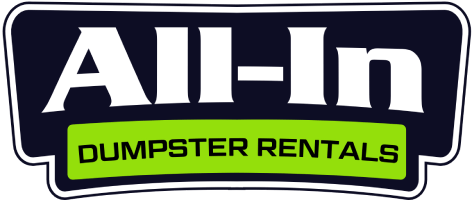Stay compliant with Western North Carolina construction debris disposal regulations. Learn local requirements, best practices, and how All-In Dumpster Rentals can help your project remain code-compliant.
_______________________________
Managing construction debris properly isn’t just about keeping your worksite clean—it’s a legal requirement in Western North Carolina. Whether you’re a contractor handling a major commercial project or a homeowner tackling a DIY renovation, understanding the regulations that govern construction waste disposal is crucial for avoiding fines and protecting our beautiful mountain environment. At All-In Dumpster Rentals, we work with contractors throughout Buncombe, Henderson, Haywood, and Madison counties to ensure their projects remain compliant while keeping disposal simple and affordable. By partnering with local waste management facilities, we can facilitate effective construction waste recycling strategies that minimize landfill impact. Our goal is not only to help you stay compliant with local regulations but also to promote sustainable practices within the construction industry. Together, we can reduce the environmental footprint of your project while ensuring responsible and efficient waste disposal.
Understanding Construction Debris Classifications in WNC
Construction and demolition (C&D) debris includes materials like concrete, wood, metals, drywall, and roofing shingles. In Western North Carolina, regulations classify these materials differently from regular municipal waste, and they require specific handling procedures. The North Carolina Department of Environmental Quality (NCDEQ) sets baseline requirements, but local counties and municipalities often have additional rules specific to our mountain region’s unique environmental concerns.
County-Specific Regulations You Need to Know
Each county in our service area has its own set of regulations for construction debris:
Buncombe County: Requires separation of recyclable materials from construction waste and prohibits certain materials from landfills entirely. Asheville has particularly strict enforcement of proper disposal methods. Residents and contractors should familiarize themselves with local guidelines to avoid penalties and ensure sustainability. To aid in proper waste management during challenging times, the county often provides poststorm waste disposal tips for handling debris and recyclable materials effectively. By following these guidelines, the community can contribute to a cleaner environment while complying with regulations.
Henderson County: Mandates that contractors obtain proper disposal documentation for permitting purposes and places restrictions on burning construction debris.
Haywood County: Requires construction debris to be taken to designated facilities and emphasizes special handling for potentially hazardous materials like treated wood and paint.
Madison County: Has specific requirements for construction waste containing potential contaminants, with focus on protecting the county’s watershed areas.
Common Compliance Issues for Contractors
Many contractors face challenges with regulatory compliance, including:
Improper waste segregation that violates local ordinances
Lack of documentation proving proper disposal when required for final inspections
Unauthorized disposal of restricted materials that can trigger significant penalties
Stormwater runoff violations when debris isn’t properly contained on site
Best Practices for Construction Debris Compliance
Maintaining compliance doesn’t have to be complicated. Following these guidelines will help ensure your project meets all local requirements:
Plan ahead: Before beginning work, research the specific regulations for your project’s location and build disposal costs into your budget.
Separate materials: Many materials can be recycled or require special handling. Keep different types of waste separated when possible.
Maintain documentation: Keep receipts from disposal facilities, especially for projects that require final inspection approval.
Control site debris: Use appropriate containers that prevent debris from spreading beyond your worksite, which can violate local ordinances.
Work with knowledgeable partners: Choose a locally-owned dumpster provider familiar with Western North Carolina’s specific requirements.
Let Us Handle Your Construction Disposal Compliance
As a family-owned business serving Western North Carolina, All-In Dumpster Rentals understands the local regulations that affect your construction projects. Our team can help you select the right dumpster size for your needs while ensuring you remain compliant with all local requirements. We offer 10-yard, 13-yard, and 15-yard roll-off dumpsters perfect for construction projects of any size.
Call us today at our local number to speak with our friendly team about your construction debris disposal needs. We’re available 7 days a week from 6:30am to 7:00pm to answer your questions and provide free quotes for your project. Your compliance is our priority! Our experienced professionals can guide you through roof debris disposal best practices to ensure that your project is efficient and environmentally friendly. We understand that managing waste can be overwhelming, so we’re here to simplify the process and help you stay compliant with local regulations. Trust us to handle your construction debris responsibly, allowing you to focus on what matters most: completing your project on time.
